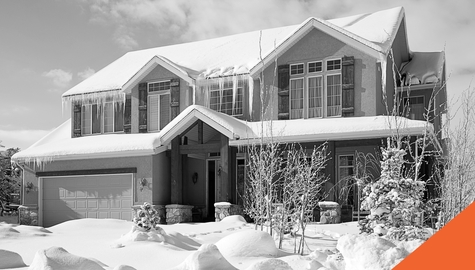Does Your Address Impact Your Car Insurance?
Wednesday, 22 October 2025
When it comes to car insurance, most drivers are aware that factors such as their driving record and vehicle type can impact their premiums. But did you know your address plays a major role, too? From accident stats to parking conditions and crime rates, your postal code gives insurers key insight into your risk level—and it can impact how much you pay. Whether you’re planning a move or just want to better understand your policy, it’s worth knowing how your location affects your rate.
Please note: This blog provides a general overview of how car modifications can impact your insurance. It is not all-encompassing and should not be taken as specific advice. Be sure to discuss your unique circumstances with a licenced insurance broker to receive guidance tailored to your situation.
When it comes to calculating your car insurance premium, your address plays a bigger role than you might think. While factors like driving history and vehicle type are important, your postal code can influence how much you pay, simply because it tells insurers a lot about the risk associated with where you live.
Your address isn’t just where you live, it's also one of the biggest indicators insurers use to assess how much you should pay for coverage. From neighbourhood crime stats to street parking conditions, insurers consider all the variables tied to your location. So, whether you’re thinking of moving or just curious about how your rate is calculated, it’s worth understanding how your postal code factors into your premium.
Why Postal Codes Matter to Insurers
One of the biggest factors insurance companies consider when setting your car insurance premium is your postal code. It may seem like a small detail, but your postal code provides insurers with a wealth of data that helps them assess your risk level and ultimately, how much you’ll pay. Insurance is all about managing risk, and companies rely on statistics and historical trends to predict the likelihood of future claims in a specific area.
- Accident frequency in your neighbourhood or commuting area
- Vehicle theft and vandalism rates, which can vary significantly between regions
- Weather-related risks such as hailstorms, flooding, or harsh winter conditions
- Claims volume from other drivers in the same region, which can influence local risk scores
Even if you’re a careful driver with a clean record, living in an area that sees frequent collisions, break-ins, or extreme weather may result in higher premiums. This isn’t because insurers believe you’re a risk personally—it’s a statistical calculation. For example, a driver in a densely populated urban area may pay more than someone in a quiet rural community simply because the city driver faces more traffic, tighter parking, and greater exposure to accidents and theft.
Understanding how insurers use postal codes helps you make more informed decisions when moving or reviewing your policy.
Urban vs. Rural: The Cost of Where You Live
One of the most consistent pricing differences in car insurance comes down to the urban-rural divide.
Living in an urban area, such as downtown Toronto or Vancouver, often means higher premiums. Why? There’s more traffic, more cars, and higher chances of accidents or theft. Street parking is more common, and tight driving conditions lead to more fender-benders. Insurers price your policy accordingly.
In contrast, rural areas typically have:
- Lower population density
- Fewer cars on the road
- Less traffic congestion
- Fewer reported claims
This often translates to lower premiums. If you’ve ever wondered why your city-dwelling cousin pays more than you do for the same car, this might be the reason.
Parking and Risk: Where You Park Matters
Your address also provides insurers with clues about where your car is parked when not in use, which affects the risk. Where you park your car, whether in a garage, driveway, or on the street, plays a significant role in how insurers assess your premium.
Garage parking is typically the most secure option, protecting your vehicle from car theft, vandalism, and weather damage, which usually results in the lowest insurance rates. Driveway parking is considered moderately safe; while it offers more protection than the street, your vehicle is still accessible and vulnerable to potential damage, leading to mid-range premiums. On the other hand, street parking presents the highest risk, especially in busy or poorly lit areas. As a result, it often comes with higher premiums.
If you move homes and your parking situation changes, it’s important to let your insurer know, as it can impact your rate more than you might expect.
Moving? Your Premium Might Change
A common misconception is that your car insurance follows the car, not the address. But moving, even just a few blocks, can lead to noticeable rate changes. That's because your new postal code could fall into a different risk classification. It is important to let your broker know of a change of address.
You might experience a higher rate if you’re moving:
- Into a busier neighbourhood with more accidents or theft
- Into an area with more uninsured drivers or a history of high claims
You could see a lower rate if you're moving:
- Further out of the city, where claims are less frequent
- To a neighbourhood with better parking or lower crime rates
Even your commute distance can change your risk profile. A longer commute increases time on the road and the potential for incidents, which can also impact your policy.
Should You Report a Change of Address?
Providing your insurer with your correct address is essential for two reasons:
- Claims accuracy: If you’re in an accident but haven’t updated your address, your claim might be delayed or even denied.
- Policy integrity: Misrepresenting where your vehicle is kept (even unintentionally) can lead to policy cancellation or non-renewal.
If you’re planning to move, contact your broker in advance. They can walk you through how your rate might change and help ensure your coverage is uninterrupted.
How to Update Your Address with Your Insurer
Updating your car insurance address is a straightforward process. Most insurers allow you to:
- Call or email your broker directly
- Use an online customer portal
- Visit a local office (if you have one nearby)
Be ready to provide:
- Your new address (including postal code)
- Your new parking situation
- The date the change takes effect
You’ll receive a new quote based on the updated location, and your premium may be adjusted accordingly. Curious about other factors that affect car insurance? Read more here.
Can I Save Money Based on My Address?
If you’re moving to an area with lower risk factors, you could qualify for a lower premium. To maximize potential savings:
- Let your insurer know if you're now parking in a garage instead of the street.
- Ask about bundling opportunities—especially if you’re also insuring a new home or condo.
- If your insurer offers location-based discounts (e.g., low-theft zones), make sure you’re taking advantage of them.
In a way, your postal code acts as a kind of snapshot of local driving risk. While it may seem unfair that you’re judged partly by the actions of others in your area, the goal is to price policies in a way that reflects the true cost of insuring different environments. This is why even moving just a few blocks, or within the same city, can impact your car insurance rate.
Moving soon? Contact a BIG Insurance broker today to ensure your policy moves with you—and your rate stays fair. We’re here to help you make confident, informed choices, wherever the road (or your address) takes you.



